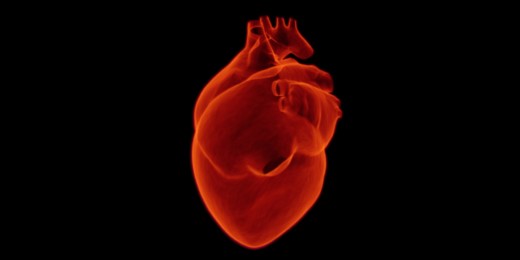Too often, heart failure patients are only reminded about sticking to their medication treatment plan without an emphasis on healthy behaviors. While consistently taking medications is critical, lifestyle factors also play a vital role in preventing the progression of this chronic condition. The next two installments in this blog series will explore the benefits of managing diet and physical activity for those with heart failure.
One of the most important dietary rules for those with heart failure is to follow a low-salt diet. Sodium, one element in table salt, plays an important part in maintaining the right blood volume. When there is too much sodium in the blood, the body retains more fluid. This extra fluid causes blood volume and blood pressure to rise, putting additional strain on the heart.
For those with heart failure, fluid balance is critical and the heart is unable to handle the additional fluid retention that happens with a diet high in salt. Consuming less than 1,500 mg of sodium daily is recommended. Sodium content can easily be identified on the nutrition label of most food items. Following are some tips for reducing daily sodium intake:
- Avoid using adding additional salt to foods. Instead, try seasoning alternatives.
- Avoid processed or pre-packaged foods as these can have huge amounts of sodium.
- Avoid canned foods, such as soups, fish, and vegetables.
- Reduce the use of salt-laden condiments such as soy sauce, ketchup, mayonnaise, mustard, pickles, olives, and salty seasonings.
- Read food labels, try to avoid any foods with over 400 mg of salt per serving as these can add up quickly to exceed the daily recommended sodium amount of 1,500 mg.
While planning for a low-sodium diet is important, a heart-healthy diet is equally important. Like any healthy nutritional plan, heart failure patients should still be emphasizing fruits and vegetables, whole grains, and healthy fats and oils.
Let's check in on Mr. A, a 66-year old male with diastolic heart failure. He adheres to a low-sodium diet to manage his condition. Typical meals throughout Mr. A's day include:
- Breakfast: Home-cooked oatmeal with skim milk
- Lunch: Whole wheat toast, raw carrots and celery, and a hard-boiled egg without salt
- Dinner: Grilled salmon or chicken, and steamed spinach with low-sodium seasoning
Eating at home makes it easier to keep track of and measure sodium intake. However, heart failure patients don't need to avoid dining out altogether. Some important rules to remember when enjoying meals at restaurants are:
- Avoid soups and foods with heavy broths or sauces.
- Minimize breads and rolls, especially those crusted with salty and buttery crusts; also avoid adding extra butter as most restaurant butters are salted.
- When ordering salads, ask for dressing on the side so you can control and reduce the amount you add to salad.
- You can ask for foods to be cooked without salt or monosodium glutamate (MSG), which is a common additive.
- Avoid salted condiments like olives and pickles.
- Avoid fast food restaurants or fast food-like items such as french fries.
- You can always ask the server about low-sodium options or how the food is prepared.
Eating a low-sodium diet is a priority for heart failure patients; however, it is also important to consider choosing foods that are low in saturated fats and to avoid alcohol.
Keeping track of your weight is another important part of taking care of heart failure, as weight can fluctuate quite rapidly due to fluid retention. Sudden weight gain such as 5 pounds in a week is a sign that the body is collecting too much fluid, which can indicate worsening heart failure. In this case, patients should contact their physicians as soon as possible.
While all of these tips apply to those with heart failure, adopting a healthy and balanced diet is important to keep your heart healthy. The steps for preventing and treating heart failure are similar. Getting enough fresh fruits and vegetables, avoiding frequently eating highly processed or pre-packaged foods, and eating heart-healthy foods such as salmon or nuts are good practices for everyone.
This is the fifth in a series of blog posts, Demystifying Heart Failure, to help patients and family members better understand and help mitigate heart failure. The next blog will focus on the importance of exercise.
Min Joo Kim is a master's degree student in Community Health and Prevention Research at Stanford studying the patient experience for those with chronic conditions and identifying barriers to treatment. Randall Stafford, MD, PhD, professor of medicine, focuses on strategies to improve chronic disease treatment, including engaging patients in their own health care.
Photo by Jason Tuinstra






